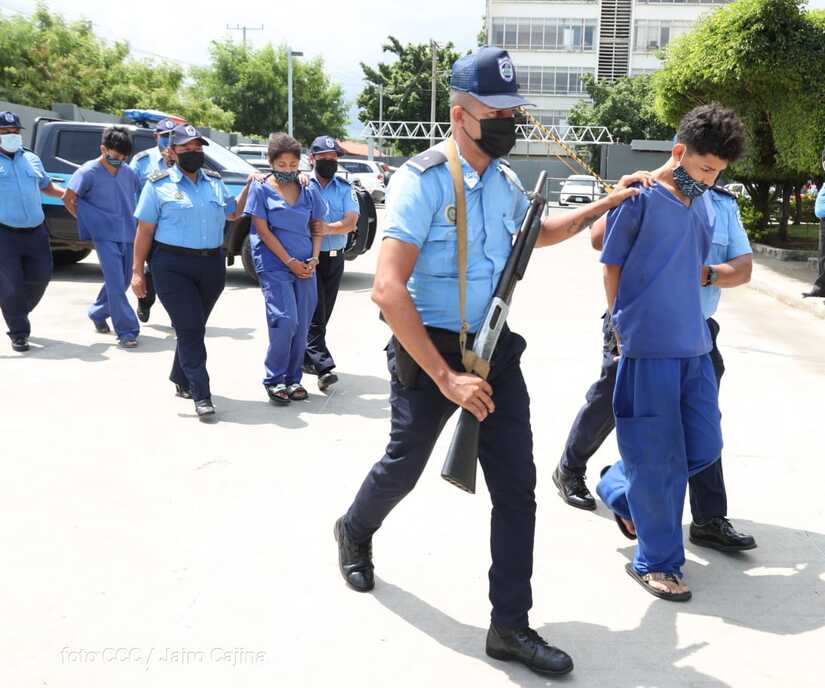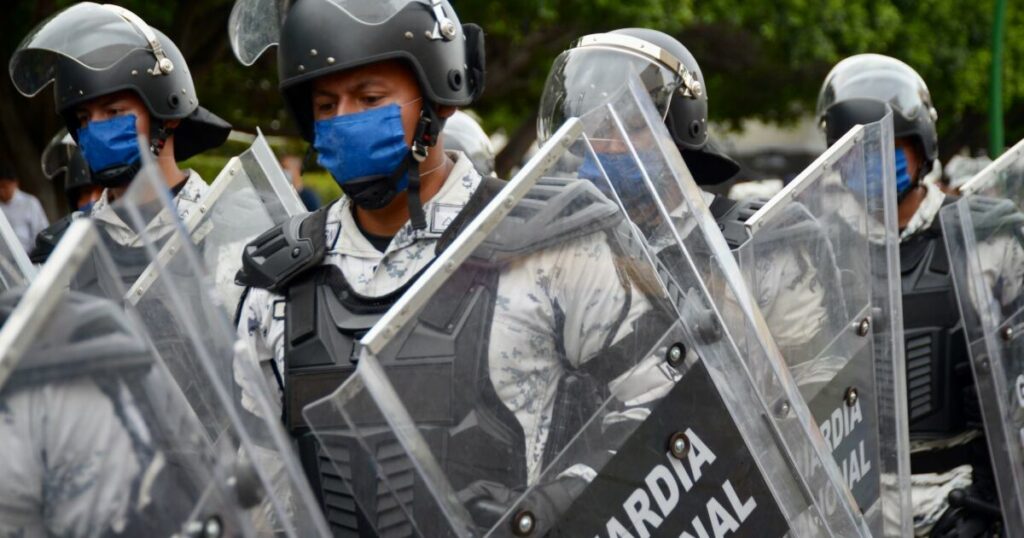Nicaragua faces the increase in sexist violence without an “articulated” strategy, in a context of impunity and the accelerated dismantling of more than 80 women’s defense organizations, a set of factors that fosters a dangerous scenario for women, activists warn consulted feminists.
The murder and attempted rape of two girls aged 10 and 7, which occurred in Ciudad Belén on Friday, September 2, has shocked the population. The Ortega regime, as has happened with other femicides, assured that the guilty will pay. “The commitment not to impunity and to move forward by working hard to prevent these horrific crimes that shame us all,” Vice President Rosario Murillo said last Wednesday, September 7.
This Friday, September 9, the Prosecutor’s Office accused Alfredo Antonio Lara Ortiz, 19 years old; Ángel Elías Salgado Rugama, 16 years old, and Alison Yahosca Salgado Rugama, 18 years old, of being the alleged perpetrators of the crime of the minors. During the eight months of 2022, the Catholic organization for the Right to Decide (CDD) registers nine minor victims of sexist violence, five adolescents and four girls.
From the perspective of the member of the Network of Women Against Violence, whom we will call “Luisa” for security, in Nicaragua “the red alert of femicides remains.” During the eight months of 2022, 42 femicides and 110 frustrated are recorded, says CDD.
The sociologist and feminist, María Teresa Blandón, maintains that there is no known document that explains what the State’s proposal is to confront sexist violence. In any case, she pointed out that a strategy requires actions sustained over time, which allow the adoption of measures that prevent cases like the one of the girls murdered in Ciudad Belén from repeating themselves. What is becoming increasingly evident is that citizen violence, and particularly against women, continues to increase, she warned.
Life imprisonment, primer and more women’s police stations
Since January 19, 2021 in Nicaragua there is life imprisonment. The Ortega party pointed out the need to “establish a rigorous criminal policy for certain exceptionally serious criminal acts, which requires an intensification of the sentence, as an immediate response by the State to prevent, punish and eradicate cruel, degrading and inhumane crimes and of hate,” reads the text presented by the Sandinista deputies.
However, the establishment of life imprisonment “has not had any positive impact” in terms of reducing the number of femicides, says the defender “Luisa.” Since the initiative was known, different women’s organizations warned that a law of this nature did not solve violence against women, because this is a multidimensional problem.
Indeed, Nicaragua registers a sustained increase in completed and frustrated femicides from 2020. Until August 2022, 184 women have been killed and 365 are survivorsaccording to monitoring CONFIDENTIAL, based on monthly reports from Catholics for the Right to Decide.
Regime primer: “A demagogic instrument
Faced with the escalation of more violence against women, the government response has been scattered. In July they launched the booklet Women, Rights, Laws and Complaint Mechanisms for the prevention of femicide, which until August 20 had been shared with more than 682,600 families, according to government media.
For Blandón, this booklet is an information tool, and for it to be justified, it must report on prevention policies, care for victims, and access to justice, but there is none of that in Nicaragua, he said.
“It is a primer that has no support, that has no foundation. It is rather a demagogic instrument”, he expressed. He added that in the document they tell women where to report, but in reality, there is nowhere to do so. One of the recurrent barriers to the prevention of femicides, according to defenders, is that the Police dismisses the complaints filed by the victims, who in many cases end up murdered by their aggressors.
“We do not need a police officer just to go and collect bodies. We need a police force to deal with complaints and to act quickly,” Blandón claimed. “Luisa” assures him, based on a survey carried out with women, that the primer is not working because, in practice, when they arrive at the police stations, the victims do not find officials who are aware of the problem of sexist violence.
Vice President Rosario Murillo has been in charge of highlighting the creation of each new police station for women, children and adolescents, of which there are 144 -according to Police data- in the country, to guarantee the safety of women.
This argument is refuted by defenders such as Blandón, who points out that a police station “is not a desk with a uniformed officer”, but rather requires qualified personnel, officers trained in human rights, who understand sexist violence and have sensitivity to deal with the victims, and have an earmarked budget.
The Police need to have clear coordination mechanisms with the Prosecutor’s Office to develop timely investigations, as well as with the Ministry of Health, the Ministry of the Family, the Ministry of Education. “If we don’t have a strategy that includes mechanisms, that includes financial resources, that includes qualified and trained personnel, then we don’t have a strategy,” said Blandón.
The sweep of feminist organizations
The Mesoamerican Initiative of Women Human Rights Defenders counts more than 80 feminist organizations and groups closed by the Daniel Ortega regime from the end of 2018 to date; however, Blandón assures that the number is much higher than 170. All included in their work the accompaniment of victims of sexist violence and maintained systematic awareness campaigns to prevent sexist violence.
At the same time, they demanded from the State an appropriate response to the seriousness of the problem in accordance with the Political Constitution and the Comprehensive Law against violence against women, Law 779, and were in charge of providing shelter to women who were at risk. . By being forced to close, the State, says Blandón, “deliberately increases the lack of protection and vulnerability of the victims of sexist violence.”
















